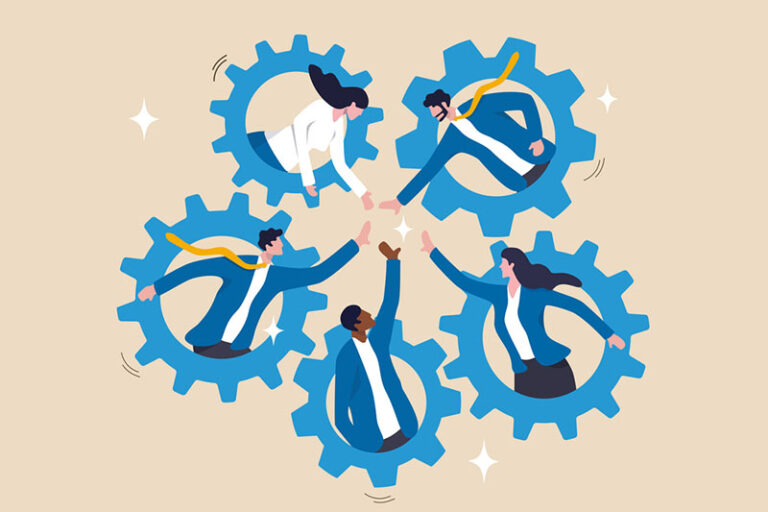Plenty of organizations talk about diversity, equity, and inclusion, but get no further than some meaningful discussions. Many companies take the next step and embark on initiatives that focus on certain aspects of DEI, like hiring or creating resource groups for under-represented team members. But when an organization’s leadership truly understands the value and importance of DEI — and commits to it long term –it goes beyond initiative status. DEI becomes woven into the fabric of its culture. DEI becomes an intrinsic aspect of what it means to be a team member, a manager, and a leader. Like the foundation of a home, DEI becomes part of the values upon which all team members stand.
Over the last few years, I heard from several organizations’ leaders who sought counsel regarding their DEI efforts. In an initial conversation with the CEO and CPO of Meritage Homes (“Meritage”), they indicated that they wanted to ensure their strategy and approach to DEI were meaningful. They were speaking with a number of firms to find the best path. I asked, “What do you want to do with your DEI effort?” They responded that this was the first time in all their conversations that they’d been asked that question. They knew there were a lot of best practices out there but looked forward to exploring an approach unique to their organization.
The Starting Point
Meritage’s leadership thought about DEI diagnostically, approaching it like any other strategic issue related to a product launch or service. They considered the problem, took time to understand it, and then prioritized the elements they were prepared to undertake. Only then would they take action.
We discussed developing a DEI effort that would complement their existing business strategy and align with company values in order to be sustainable. It would be inclusive, inviting opinions and perspectives from those within the organization and would serve to strengthen both engagement and culture. The company had great engagement within their teams, but were unsure about the state of their culture, how individuals experienced the organization overall and its leadership.
Ultimately, we aligned on the idea of leveraging DEI to maximize individuals and achieve a competitive advantage from a people and product perspective.
Foundational Work
We began with a culture audit polling a representative sample of the company’s 1,700 employees. We used the findings to discover what was needed, and how meeting those needs would support both DEI efforts and their business goals.
The audit results showed a strong, healthy organization. Some leaders would then think, well, then we don’t have a problem to address! Employees see opportunities for growth, transparency in leadership, and have a clear sense of their role in achieving organizational mission. But Meritage leaders recognized that because of the strength of the organization they could take on efforts to increase DEI beyond race and gender and maximize the potential of its people’s unique perspectives.
Javier Feliciano, Chief People Officer for Meritage understood that a healthy culture was a building block for advancing the organization overall, “Working with Benton + Bradford to assess our culture enabled us to take a close look in the mirror with a strategic guide to help define our go-forward opportunities.”
Creating the DEI Vision
The DEI Vision for Meritage needed to be forward-focused, reflecting the desired impact and intent of future efforts. Our objective was improving the organization through DEI and linking to ROI-minded initiatives that could be strengthened by diversity, equity, and inclusion.
Through an iterative process involving the diversity council, senior leadership, the executive team, and the board of directors, we spent time gaining understanding, breaking down barriers, and building a clear value proposition for DEI. We made no assumptions that everyone approached or understood the issues we were tackling in the same way. We never deviated from the dual purposes of our efforts: to increase DEI at Meritage while also improving business outcomes.
Ultimately, we created a vision and definitions that are unique to Meritage’s mission and culture. We connected the organization’s vision, shared definitions of DEI, and the “why” for leaders and employees. Understanding the reasons for enhancing DEI at Meritage was as important as defining it.
Meritage CEO Phillippe Lord noted, “In our strategic work with Benton + Bradford Consulting we were able to demonstrate the linkage between our core values and DEI in a way that had clear and actionable meaning for our teams. We achieved clarity about how we leverage DEI to create a strong sense of belonging for all our people while achieving business results.”
The Rollout
To introduce the new DEI definition and focus on values within the organization, Meritage worked with Benton + Bradford on a change management effort using the Kotter Model. In partnership with Meritage VP of Inclusion and Culture, Regina Rivera, we developed a multi-faceted approach that enabled all members of the organization to understand the Meritage definition of DEI and its value in achievement of organizational goals. Regina indicated, “Making sure we anchored this effort to our values and applied a disciplined change management process were key to a sustainable business-focused effort.” We developed a multi-channel communications approach to ensure all Meritage employees understood the new DEI definition and accompanying vision that supported our business goals and fit our culture of inclusion and belonging. We introduced the definition and vision through videos, webinars, written communications, feedback opportunities and other educational efforts.
During this time, Meritage also launched an engagement survey with a DEI and Values index as a collaboration between Benton + Bradford Consulting, the company’s engagement provider, Perceptyx , and Regina Rivera, Meritage VP Inclusion and Culture. The survey was designed to establish a baseline for the effectiveness of the effort. As a result, Meritage could see initial positive effects of a thoughtful and disciplined approach to DEI. The index also pointed to how different groups could have a more consistent experience within the organization.
Current State
In the post-rollout phase, Meritage employees are cultivating a culture more open to and respectful of differences, recognizing the value and positive impact it brings.
We see strong indicators of positive momentum, like more women in leadership and continued support of early career and development pipelines for mid-career leaders.
Multiple employee resource groups (ERGs) have launched. Conflict or differences in approach are more often viewed as diversity issues, with appropriate tools to resolve them, rather than letting them fester as “personality conflicts.” While they remain mindful of hiring, development, and promotion with regard to ethnicity and gender, there is new awareness of other diverse factors to be recognized as well.
People are leaning in and embracing change. Leadership capabilities are continuously leveling up. Managers listen more closely, communicate more frequently, engage in strategic problem solving and display greater interpersonal sensitivity. Employees that volunteer for additional responsibilities or that display particular skills are being developed more frequently. The company has recently appointed diverse candidates to senior roles and is expanding the leadership pool rapidly as new respect for diversity of thought gains traction at all levels. The team acknowledges they are early in their journey and have room to grow. The organization is well positioned to innovate, collaborate with an inclusive mindset, engage in broad organizational decision-making, grow the business and achieve organizational objectives for a Life. Built. Better.
CEO Phillippe Lord noted, “We’ve progressed from learning to taking powerful action to build on our culture and shore up our growth areas. We are now confident leaders, embracing differences in our teams and our thinking to innovate and evolve our industry.”
They will soon complete a culture audit to compare with the original findings, but they are not done.
Organizations don’t stop their sales, marketing, or hiring cycles. When properly adopted, DEI is a continuous cultural element that evolves and thrives within a committed organization.
Key Takeaways
- DEI is not just something to do. What are your goals for engaging in a DEI effort?
- DEI needs to connect with each organization’s vision, values, culture, and business goals for it to be sustainable.
- Understanding how DEI will positively enhance your organization is as important as defining it. How will you improve business outcomes?
- Benchmarking information about current state is essential for seeing where to focus the effort, what barriers you will need to overcome, and what organizational strengths can be leveraged.
- Organizations that have strong engagement and great cultures have work to do, too.
- DEI is an ongoing aspect of strong organizational culture. It is never “completed.”









